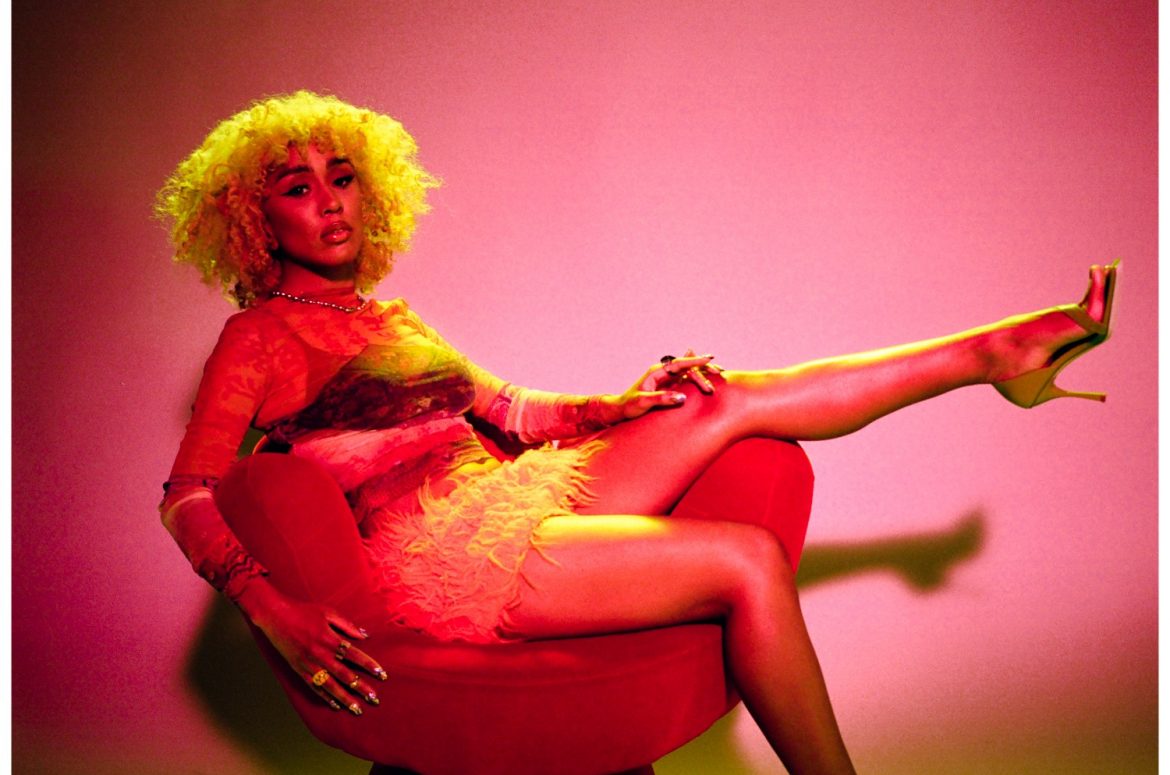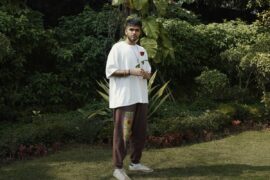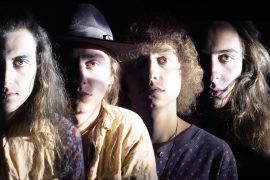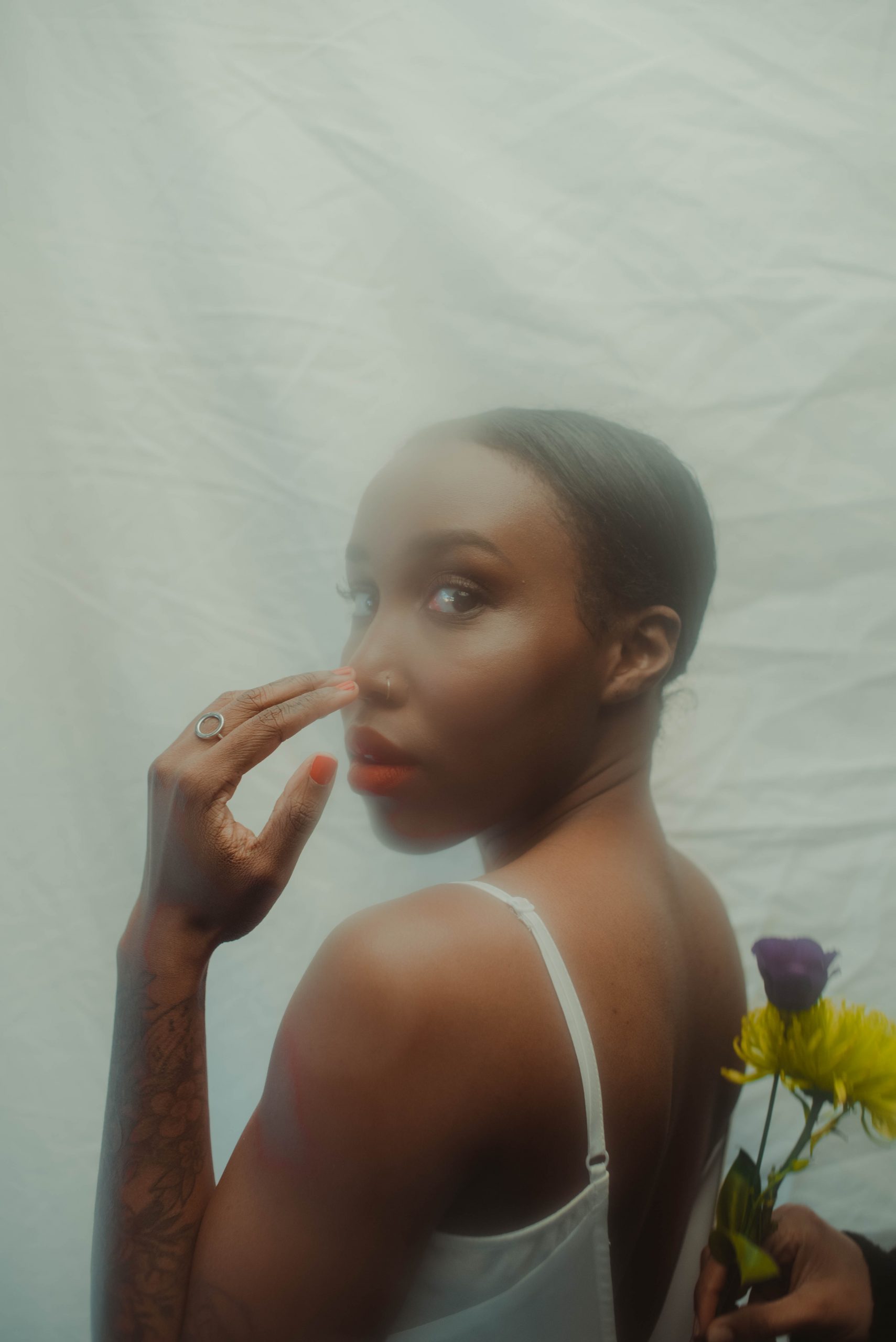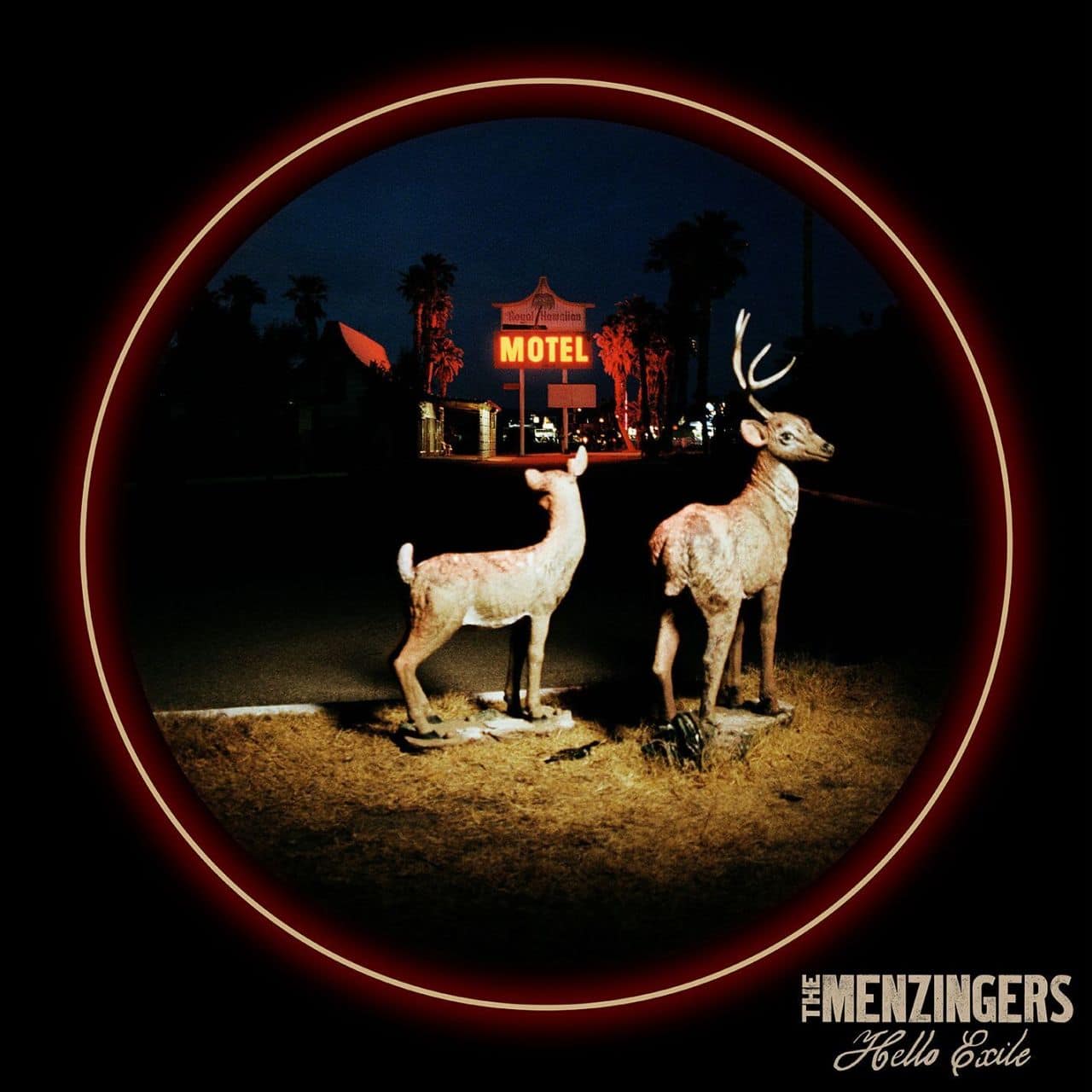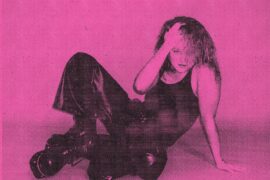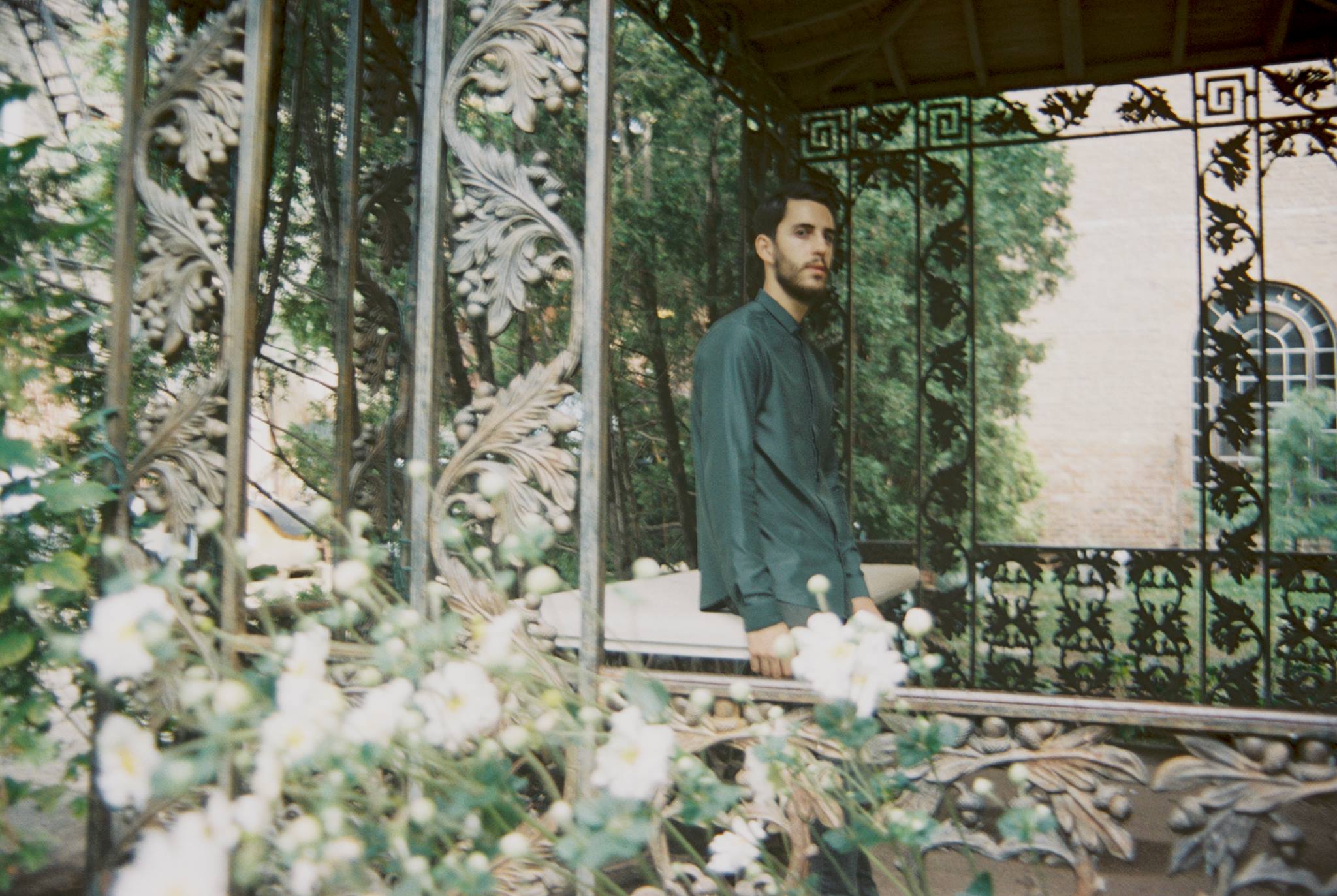Fousheé’s debut project, time machine, is a time capsule in itself — memory and the future, all wrapped up in her warm, raspy voice.
Stream: ‘time machine’ – Fousheé
With this project, I felt like I wanted to freely be able to take up space in the alt world if I wanted and still nod to the other genres that are such a big part of me.
When Brittany Fousheé created a sample pack for the royalty-free sample resource Splice, it was not likely that she imagined one of her samples going viral on TikTok in someone else’s song. Sleepy Hallow’s freestyle, entitled “Deep End Freestyle,” uses the the opening lyrics from Fousheé’s “deep end:” “I’ve been trying not to go off the deep end / I don’t think you want to give me a reason.” This was all she had written at the time — the full song didn’t exist yet, and she didn’t even like the sample very much.
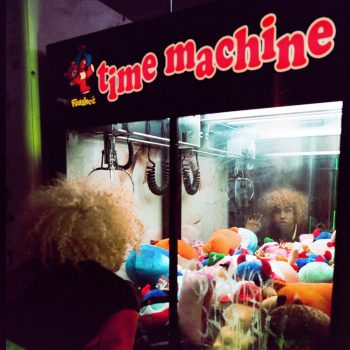
By the time she sat down to extend the sample into a full song, she had to grapple with the fact that people were already so familiar with the freestyle. How could she create something that retroactively fit her style? Something that people who had already heard Sleepy Hallow’s version would enjoy? The result, as seen from the sheer amount of streams on Spotify (173,721,065 to be exact), was successful.
“deep end” is dark, minimalist trap, punctuated by muddled guitar and Fousheé’s spiky, near-whispered verses. In the context of her debut project, time machine (out June 4, 2021 via RCA Records), it’s in stark contrast to the hazy alt-soul/folk/rock/everything else that appears on the most of the rest of the track list. These kinds of juxtapositions exist all over time machine, from the subtle to the more obvious — the most interesting being the playful interpolation of Carole King’s “It’s Too Late” on the scratchy heartbreak song “2 L8.”
I think what really made me gravitate towards [music] had to do with the fact that I was a shy kid, so this felt like communicating.
It’s clear from time machine that Fousheé’s music is no single thing. She is consistently labeled as an R&B artist, but she made it to the alternative charts with “deep end” — the first Black woman to do so in 32 years. She covers Depeche Mode and features Lil Wayne (“gold fronts“). She loves the Woodstock era and this generation’s music, playing to both sides of that musical coin. Perhaps it’s Steve Lacy’s verse on the project’s beautiful, lengthy closer “candy grapes” that sums it up the best:
I feel oh so lonely
No one truly knows me (Knows me)
Damn, I’m not in disguise
Try me two times
Fousheé isn’t in disguise. She is no longer the anonymous vocal on someone’s TikTok dance. She is a force on her own, working with whatever spirit moves her in the moment. “Can I borrow your time machine?” she asks on the opening song. Fousheé exists on her own timeline, and only she can tell us what her future holds.
— —
:: stream/purchase “time machine” here ::

A CONVERSATION WITH FOUSHEÉ
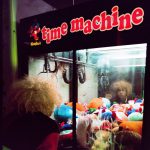
Atwood Magazine: time machine is unexpectedly low key. What led you to writing a record that’s so predominantly acoustic or without drums?
Fousheé: That’s how I feel the most comfortable starting a song. I think sometimes drums and other instruments kind of identify the song too much — like it boxes it into a certain genre. And with this project, I felt like I wanted to freely be able to take up space in the alt world if I wanted and still nod to the other genres that are such a big part of me. So I wanted to leave it more open. And I’m just a fan of those types of songs that have a lot of space. I think it leaves a lot of room for songwriting and for me to be more intimate and vulnerable with my singing approach.
How would you define your music? I always see you referred to as an R&B artist but that doesn’t feel right.
Fousheé: I hate that. I think I’m alt-soul, and I say that because there’s like all elements in it. I grew up on R&B, so there’s always going to be R&B [in my voice]. It’s hard to identify the difference between R&B and soul because it all comes from the same place, but I think soul is just more general, more open, and can describe the way that I sing in the genres that I sing in, if that makes sense, because I think it’s bigger than R&B.
Labeling people like that feels so unnecessarily prescriptive, because I hear other things in your music too, like a lot of folk.
Fousheé: Yes. I think the album ended up being very folky. And I’m okay with that. I think that can be alt too. Genres just mess everything up. Just hear the song, decide if you like it, if you can relate to it, or not. And just let it be [laughs].

Tell me about getting onto the alternative charts with “deep end.” I know there was kind of an interesting journey with this song, from TikTok and beyond.
Fousheé: I think it was important that it happened. It’s interesting how things that can be perceived as negative actually turn out for your better good. At the time, it was aggravating. But I think without that happening, I wouldn’t have been connected to the new fans that I connected with, and I think it opened my mind in terms of the music that I could make. I don’t think “deep end” was a song I would have just made. When I made that sample, it started off as a sample and someone else made a full song, and then I made the full song. When I made the sample, I didn’t like it. There were other samples that were part of that pack that I probably would have made as a full song, but I would have never thought to make this one as a full song. When I was making [the full song], I challenged myself and said, “How can I make this me? How can I make this something I would like? How can I make this something that the people who heard the other version would like? How can I make it something that is honest, and something that people can still enjoy and dance to?” It was a challenge and I grew as a result of that.
time machine kind of feels like a time capsule in itself. The lyrics move between memory and thoughts about the passage of time and the future. How did this concept come together for you?
Fousheé: It came after the fact. I wrote the song “time machine” and was like “Whoa, this project kind of feels like a time machine.” I had to bring my own meaning to it, because I think everything I write is either past memories or me thinking about the future. We’re always time traveling in a sense. Like, I’m from the East Coast and I live on the West Coast. So that commute back and forth is kind of like time travel too. I think time travel was something that we always look at like some machine that’s super advanced technologically. But no, we time travel every day through our minds.
There are a lot of contradictions here – the gentle love songs like “my slime” and the sharpness of “deep end.” Can you talk about those juxtapositions?
Fousheé: I love opposite combos. Even when I eat. I like the Chicago mixed popcorn with the cheese and the caramel [laughs]. So like, “my slime” is very folky. But then you might hear this type of lyric in a trap song. I just think it’s unexpected. We hear a lot of the same music so it’s okay to come up with different combinations of things. That makes it interesting for the listener and it’s fun for me to create. I didn’t even really think about it too much when I was writing. It was just like, how I was talking to myself in my head and I wrote it on paper and that was the melody. I think that’s why I love writing to melody alone first because afterwards, you can be more free with what genre it ends up being in. And I ended up leaving that one open. But it was a really cool juxtaposition between the two. It’s funny, because some family lady was like, “It’s so beautiful, but the words…I don’t get it.” And I’m like, “It’s not for you to get!” But then someone else is like, “Wow, I get it. This is beautiful.”
I love the Depeche Mode cover and the Carole King chorus on “2 L8.” How do these songs fit into the album for you?
Fousheé: The Depeche Mode is very simple: H&M picked that song. They approached me to do a commercial and they wanted me to do my own rendition. And we just ended up loving it so much that we put it on the project. I didn’t really grow up with that music; like I heard it, but it wasn’t like “Oh, I’m gonna do a cover.” But it was that way for “Too Late” by Carole King. I was listening to her album a lot while writing “time machine.” If there was a song I wish I wrote, that would probably be it. I think it’s just so layered and so beautiful. So strong and well said. And I just wanted to put a 2021 twist to it.
I know your mom was a musician. What effect did that have on your musical upbringing?
Fousheé: I think because of that, she was more open to her child being in music. So she was always very supportive; she would put me in dance class and would always play music around the house. Maybe not a lot of other families do that. It has a lot to do with her being a musician and a lot to do with her being Jamaican and what the culture is down there. Everything is kind of centered around food and music, and people gather often. I’ve been there one time, when I was a little kid, and I just remember us playing music until the sun came up. People are always dancing and enjoying themselves. And so that’s what she did in the house. We had like a little microphone and sound system, so I was always putting on performances for the family.
I think what really made me gravitate towards [music] had to do with the fact that I was a shy kid, so this felt like communicating. It felt like a place where I could be heard. And it was fun. I was pretty good at it. Like I was writing when I was five or six, and the adults around me were like, “Okay!” [laughs]. So I always kind of knew that’s what I wanted to do. But then, my voice is different, because I was very low spoken. I used to whisper-sing a lot and I wasn’t able to belt. So that really messed with my confidence because it was like, during the Beyoncé era where everybody’s screaming and belting, and I knew I couldn’t do that. So a lot of people were like, “You can’t sing.” But in my heart, I’m like, “I can do this and I want to do this.” My mom was very supportive of that. So I think eventually I used that difference to stand out.
What did learning guitar so recently do for your writing and musicianship?
Fousheé: It meant that I could write whenever I’m inspired, as opposed to just being in a studio setting or opposed to writing to a vibe that I might not necessarily feel at that time. Like, imagine you’re sad, and then someone sends you a party beat. So I think it just makes me have that freedom to be like, “Wow, I feel creative right now, and my mood is this, and I’m going to play like that.”
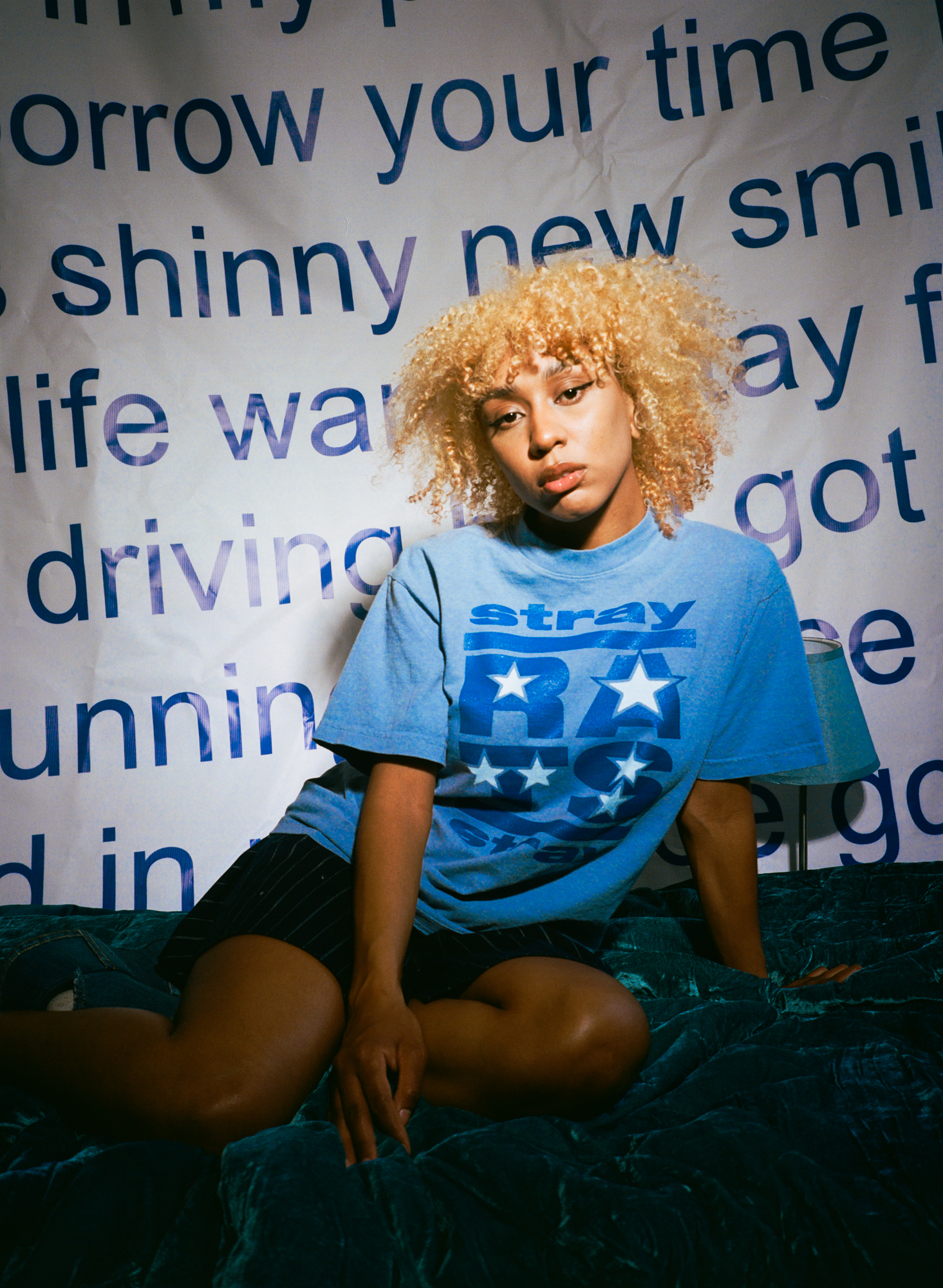
What song means the most to you on this album or resonates most with you when you perform it?
Fousheé: I have yet to perform these, but I think it really depends on the setting. I really am excited to see what “deep end” is going to feel like on a festival stage and get to play this full out with a band. I can’t wait to perform “i don’t love you no more” because I think I want to put that after a really big song and have this moment of calmness, like the moment where everyone puts up their lighters [laughs]. And “candy grapes,” of course. I already told Steve [Lacy], “You know we’re gonna perform this live right?” And “my slime” is just one of my favorites on the project. What is that gonna feel like to perform? Like, I don’t even know. It’s up for debate.
Fousheé: I want it to be a project that has replay value and can stand the test of time. I hope that I can relate to this generation, or I hope that this is a reflection of what people feel like in this generation, but also sonically reminiscent of that time in music like during Woodstock, where people were writing the songs that they did — like a timeless sound, with lyrics that nod to this generation. Something that you just want to binge play over and over. — — — —
What do you hope people take away from time machine?

Connect to Fousheé on
Facebook, Twitter, InstagramDiscover new music on Atwood Magazine
? © Matt Cowen
:: Stream Fousheé ::

